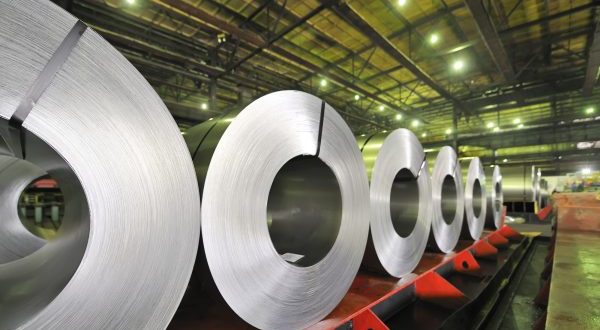The Indonesian authorities claims that the European Union’s anti-dumping tariffs on sure Indonesian stainless-steel merchandise have had a critical affect on its exports, Reuters reported yesterday, shortly after Jakarta took its grievance to the World Commerce Group (WTO).
In a brief assertion final week, the worldwide commerce physique announced that Indonesia had requested dispute consultations with the EU “regarding EU anti-dumping and countervailing duties imposed on imports of stainless steel cold-rolled flat products from Indonesia.”
Final 12 months, the European bloc imposed a countervailing responsibility of 21 p.c on imports of stainless-steel cold-rolled flat merchandise from Indonesia, which got here on prime of anti-dumping duties imposed in November 2021, which ranged between 10.2 p.c and 20.2 p.c.
In an interview with the Reuters news agency, Djatmiko Bris Witjaksono, a senior official on the Indonesian Ministry of Commerce, supplied some context for Indonesia’s WTO grievance, claiming that the mixed affect of the duties had cratered Indonesia’s metal exports to the EU. He mentioned that these had fallen from round $500 million earlier than the implementation of the anti-dumping duties to round $40 million in January-November of final 12 months.
Echoing Indonesia’s grievance to the WTO, he mentioned that the introduction of those anti-dumping duties was “not in line with WTO rules,” and that they’d “reduced the competitiveness of Indonesian products.”
The dispute isn’t the one trade-related – or steel-related – dispute between the 2 nations. In late 2019, the EU lodged a grievance with the WTO over an Indonesian ban on the export of unprocessed nickel, claiming that the export restrictions on uncooked supplies have been unfairly harming its personal stainless-steel trade.
Indonesia, beforehand the world’s largest exporter of nickel ore, announced the ban in just a few months, along with different restrictions, with a purpose to encourage downstream funding in nickel and metal processing. This ban seemingly prompted the EU to introduce its countervailing duties on metal imports from Indonesia.
Along with metal, there are different factors of pressure within the commerce relationship. Indonesian officers have been significantly exercised by a not too long ago passaged EU regulation that might strictly regulate the sale of palm oil, one of many nation’s primary agro-industrial exports. The regulation, handed in December, will “ensure that a set of key goods placed on the EU market will no longer contribute to deforestation and forest degradation in the EU and elsewhere in the world.” Indonesia was so involved concerning the new regulation that it joined forces with Malaysia to lobby towards the proposed regulatory modifications.
This got here after Indonesia filed a complaint with the WTO in 2019 over the EU’s Renewable Energy Directive II, handed the 12 months prior, which states that biofuel produced from palm oil won’t rely as a inexperienced gas, and can subsequently be phased out below the bloc’s new renewable power targets.
Whereas the EU claims that the disputes contain the right implementation of the impartial guidelines of the worldwide buying and selling system, the Indonesian authorities views the query of commerce in additional outwardly historical and political terms. In December, when President Joko Widodo announced that Indonesia would attraction the WTO’s ruling on Indonesia’s nickel export ban, he framed it as a case of Western hypocrisy and his personal nation’s battle for financial self-determination. “If we are scared of being sued, and we step back, we will not be a developed country,” Jokowi mentioned.
Evidently, these varied commerce frictions have slowed to a halt within the negotiations over a free commerce settlement between the EU and Indonesia. As William Yuen Yee noted in The Diplomat in November, since official negotiations over the free commerce pact started in July 2016, 11 rounds of talks have taken place, however, just like the WTO’s newest spherical of commerce has since run aground on the shoals of conflicting nationwide and regional curiosity.
In precept, none of those disputes are irresolvable. Nonetheless, given the variety of factors of pressure, and the extent to which they replicate extra profound historic divergences between the post-colonial world and the superior economies of the West, it’s exhausting to see Brussels and Jakarta concluding a free commerce settlement any time quickly.
#asiannews #asian_news
